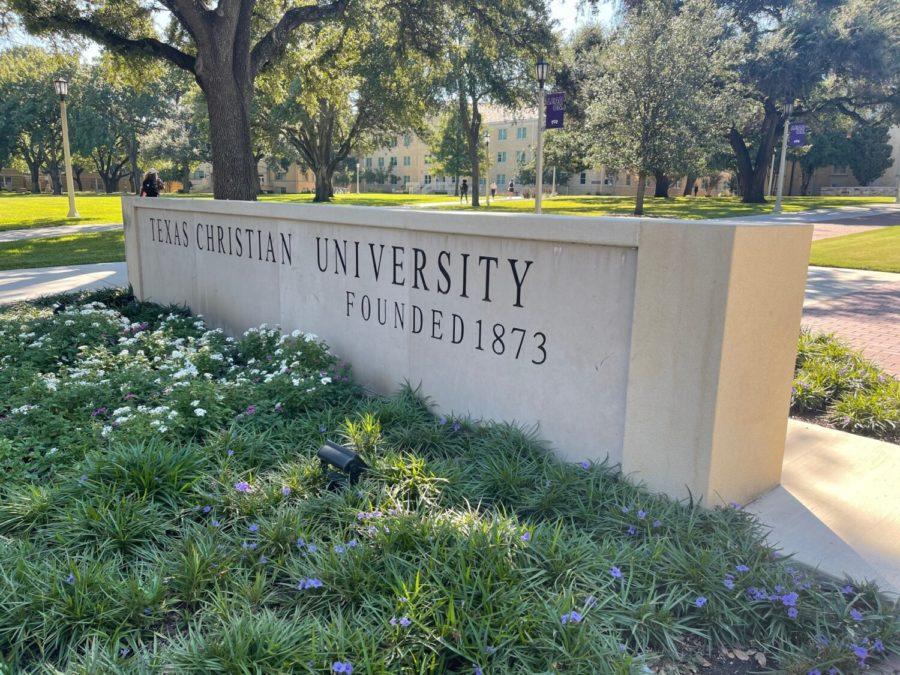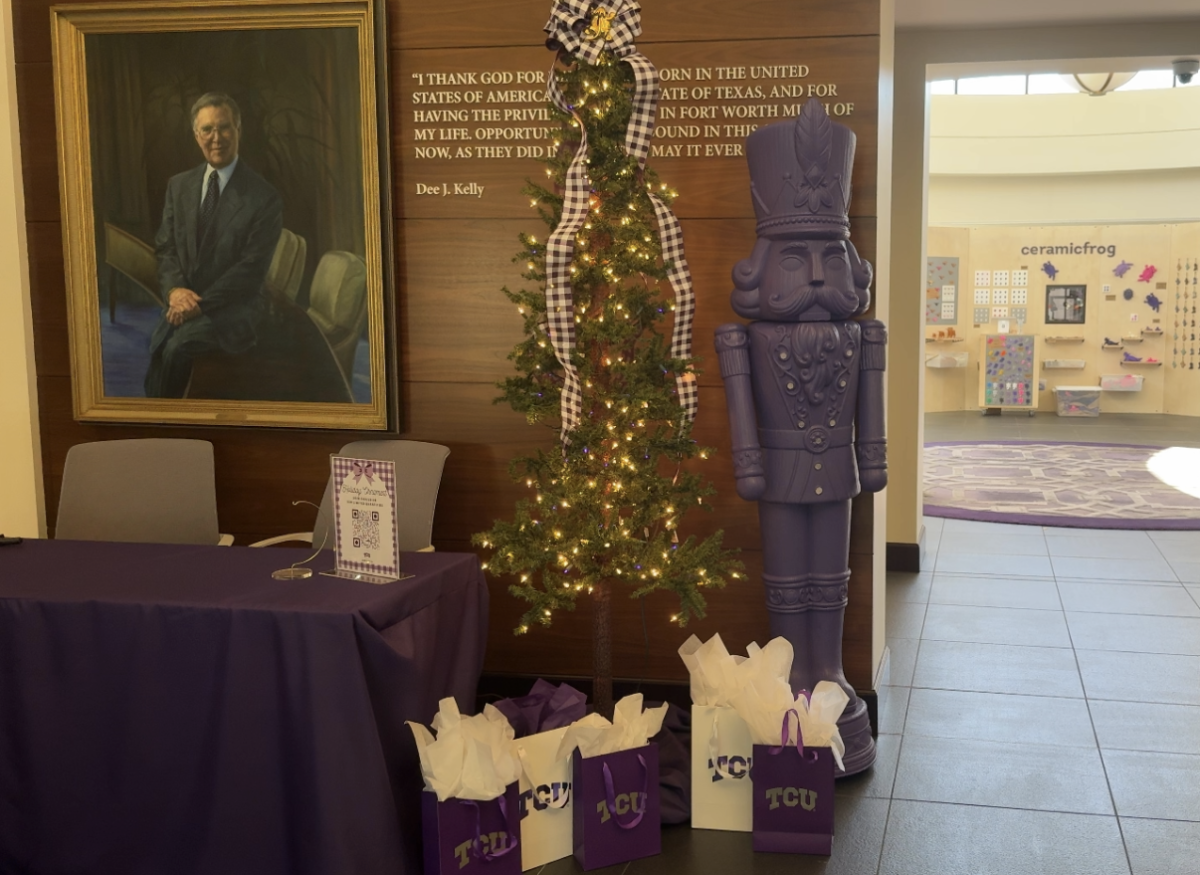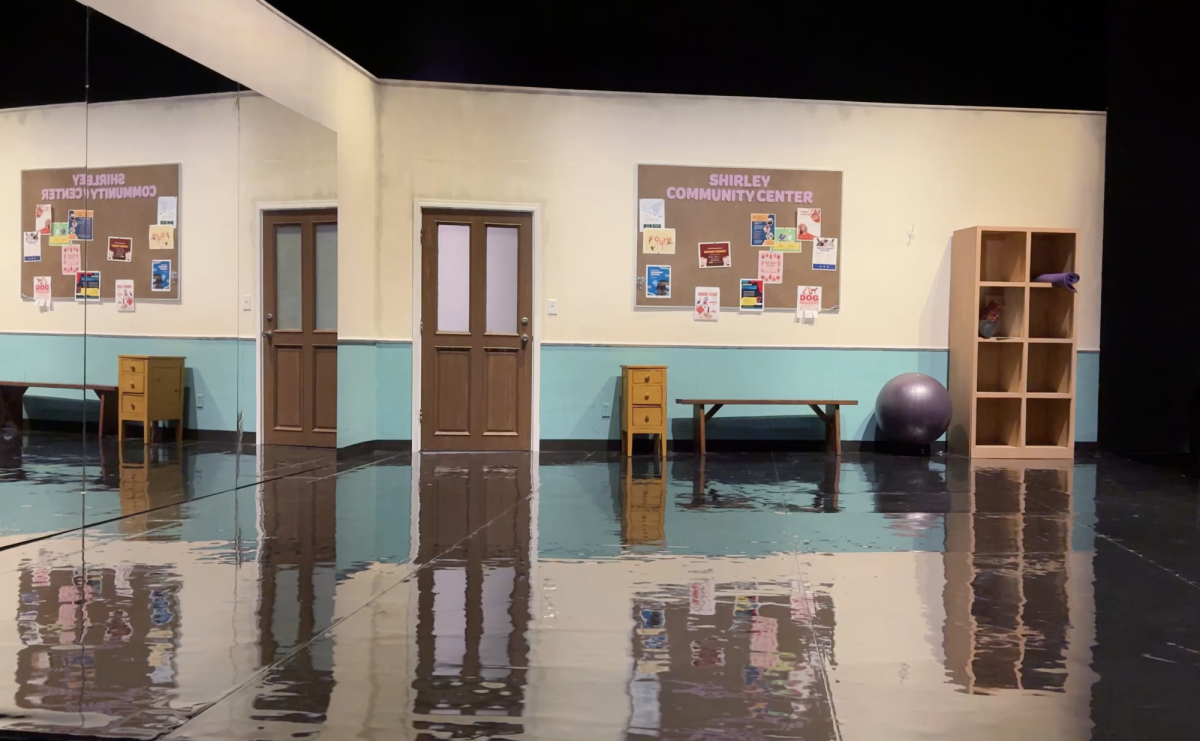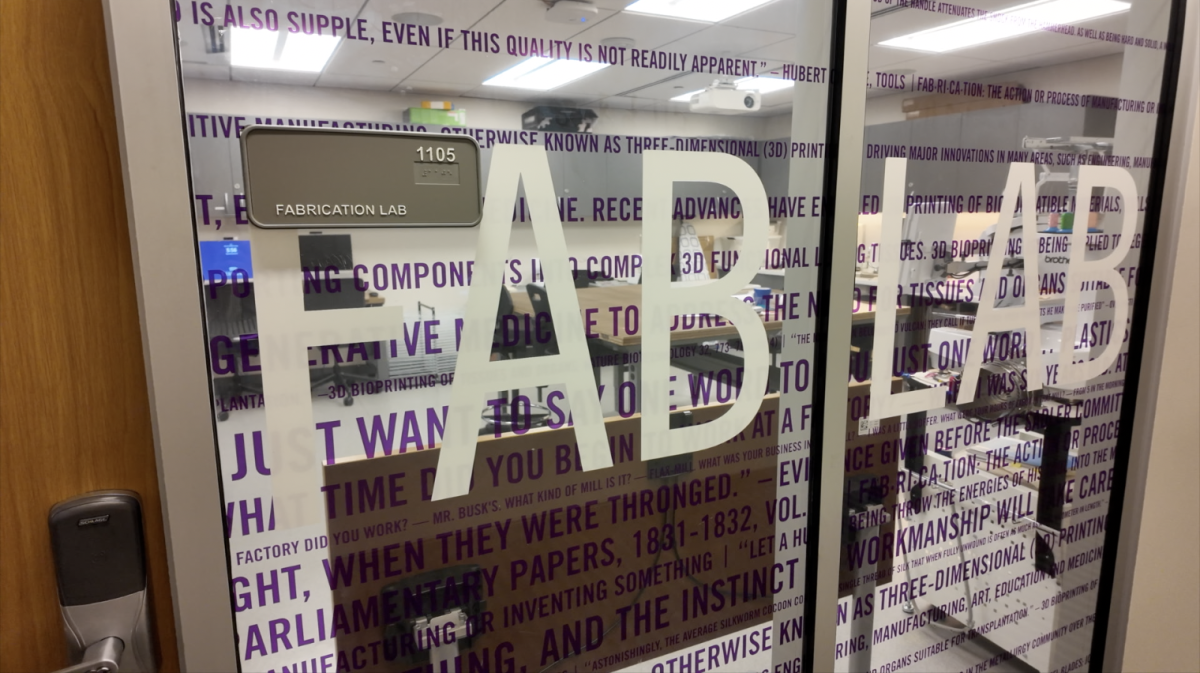TCU’s on-campus international student population skyrocketed this semester compared to last year due to the availability of the COVID-19 vaccine.
The Office of International Services worked with the Brown-Lupton Health Center to provide vaccines for all international students. Families of international students were facing the dilemma of whether to send their children to campus in the midst of the pandemic, and the opportunity for vaccination was the deciding factor for many.
Remote learning was the reality of the 2020-2021 school year. Students attended classes online due to the COVID-19 pandemic. For many international students, this meant learning from thousands of miles away.
Last year, the amount of international students on TCU’s campus was at an all-time low. Not only has classroom learning resumed in 2021, but international students are living on campus more than ever.
Read more: Undergraduate international student population hits lowest level in over a decade (2020)
Realities of remote learning

Last year, students had to adapt to the developing pandemic and unfamiliar learning practices. Of the most impacted were those living internationally, as travel restrictions and COVID-19 risks were a barrier to campus learning.
Students weren’t able to leave their countries, but this was only the first of many challenges that they faced. Many classes took place synchronously over Zoom, meaning that students had to log on at the time that class was scheduled. For those living in different time zones, this proved a major complication.
Petra Celeste Iracanye, an international economics major from Kigali, Rwanda, took classes online for two weeks before coming to campus. Iracanye explained the challenges of her experience learning from thousands of miles away.
“The difficulties with taking classes remotely were time zone differences, as we were seven hours ahead, poor network while using my computer and I had a hard time accessing books,” said Iracanye.
Many international students had to attend classes and take exams throughout the night in order to stay on track and be marked present. John Singleton, director of International Services, shared unanticipated results of this system.
“We had no idea that on their own ends, maybe families wouldn’t be empathetic to their students studying at 2 or 3 or 4 a.m.,” Singleton said.
Many international students had cultural expectations or family responsibilities that consumed the hours that they weren’t in class. Students were sleeping less and working overtime. Singleton shared that they lost students as a result.
Vaccination resources: an unexpected result
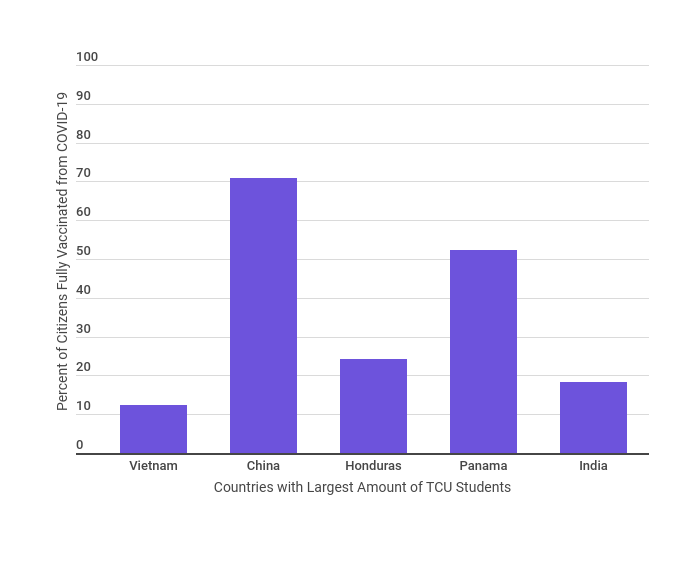
In preparation for the 2020-2021 school year, the university informed Singleton that international students would have to follow quarantine guidelines when arriving on campus. Already scheduling orientation around these timeframes, Singleton spoke to the health center about vaccination possibilities.
The health center worked with International Services to provide the vaccine for all international students. The impact was greater than anyone expected.
“Parents who were otherwise thinking, I’m still not sending my children because it’s too dangerous, now have a dilemma,” said Singleton. “We can get our child vaccinated, or we can keep them here in the house. And everyone came.”
It is difficult to get the vaccine in many countries, according to the BBC. When TCU presented this opportunity, it was the only chance that many students had to get vaccinated.
Other factors contributed to many students’ decisions to come to campus this year, and some opted out of getting the vaccine.
97% of TCU’s international students are on campus this year. Singleton explained that International Services did not adjust the number of admitted students this year. Instead, students have traveled to campus more than ever.
A new campus life

Many international students saw TCU in person for the first time in August. Students can now experience life on campus, rather than seeing it from behind a screen.
Harmann Chhabra, a sophomore from Indore, India, shared his experience coming to campus during the middle of the 2019-2020 school year.
“Zoom and online classes, accompanied with the culture shock that we already come with, made it very hard to make friends and get used to the culture,” said Chhabra.
Despite culture shock, Chhabra became involved as an orientation leader, resident assistant, representative of Student Government Association and campaign member for the student body vice-presidential and presidential candidates. He says that coming to campus was a great experience.
Chhabra shared that international students who came to campus this school year will not have to face the same social challenges. Most of the students arrived in August, so they could make friends from the start like other first-years. Additionally, they can meet peers within the classroom.
International students have faced unexpected changes throughout the development of the pandemic. Now, on campus, some of these students are a part of student life for the first time.

